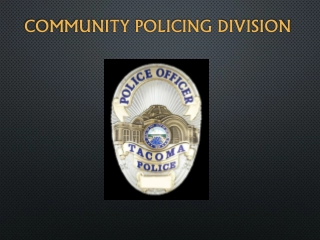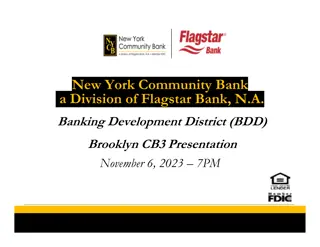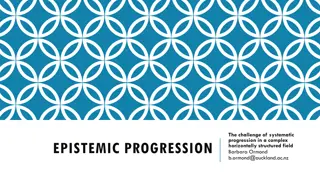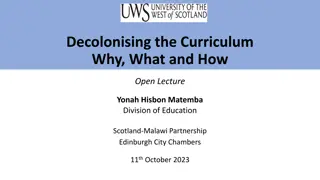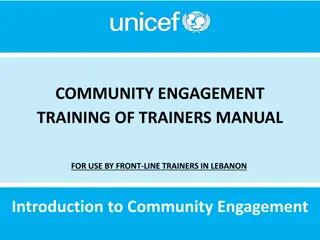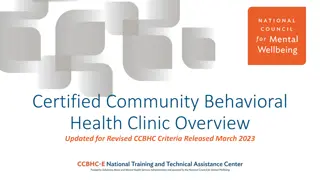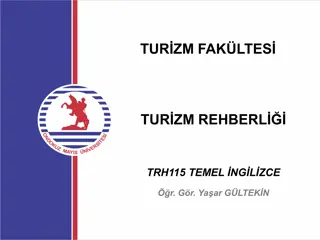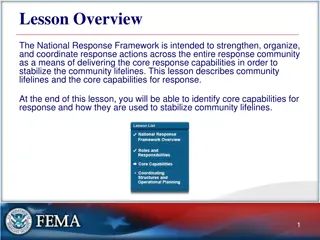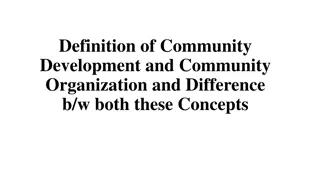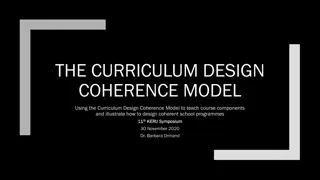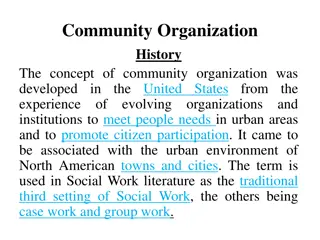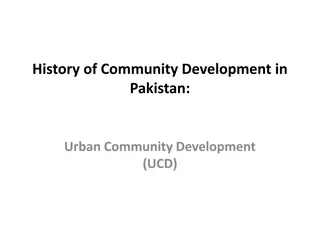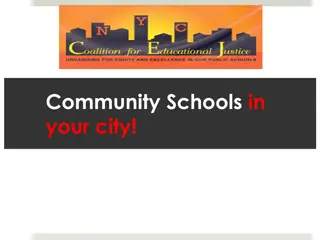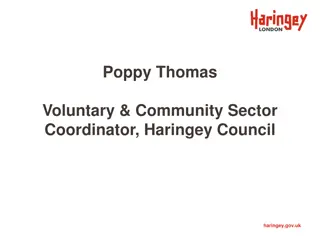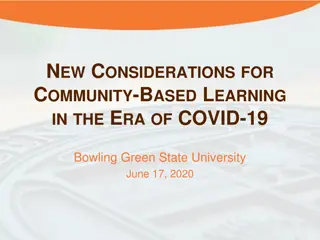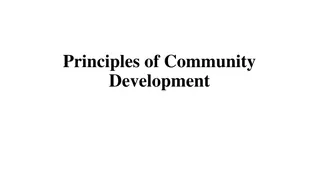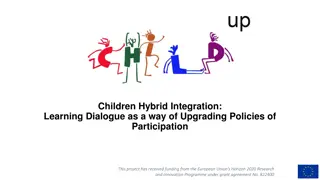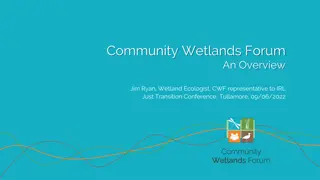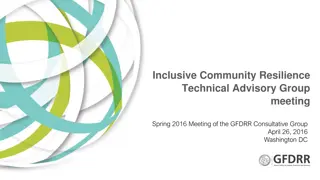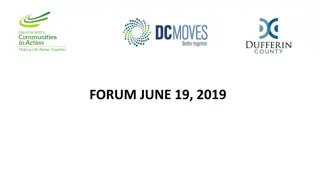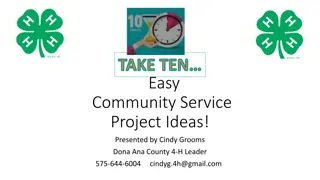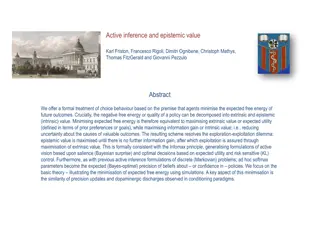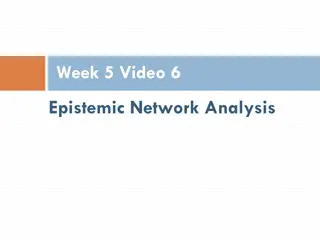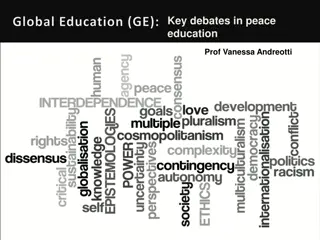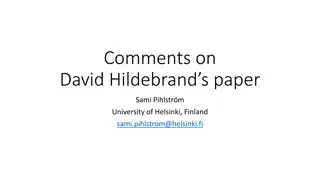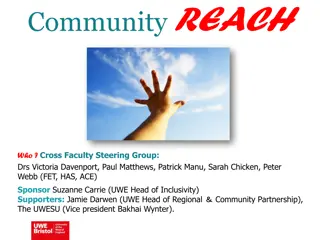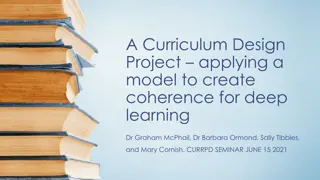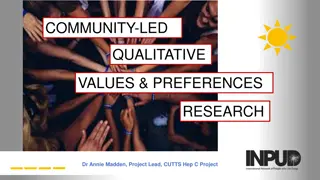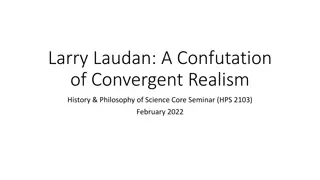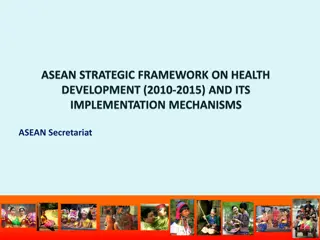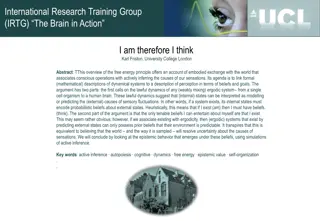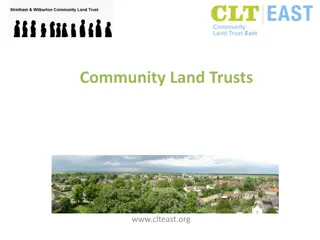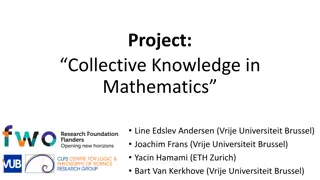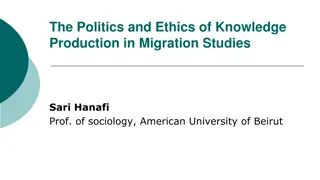Community Policing Division
The North End Tacoma Community Policing Division operates with the aim of coordinating proactive policing efforts with citizens to ensure safety and security in the community. Led by Captain Christopher Travis, the division comprises two lieutenants, an administrative lieutenant, 16 Community Liaiso
2 views • 40 slides
Lions in the Community District 27D1: Service Success and Impact
Lions in the Community District 27D1 Club Success Team is dedicated to helping clubs find meaningful service projects in focus areas like Youth, Vision, Hunger, and Environment. By connecting with the community, making new friends, and sharing talents, Lions and Lionesses aim to make a positive diff
0 views • 45 slides
Community Health Improvement Plan for Cambria and Somerset Counties, Pennsylvania (2022-2025)
This document outlines the Community Health Improvement Plan (CHIP) for Conemaugh Health System in Cambria and Somerset Counties, Pennsylvania. The plan focuses on addressing significant health needs identified through a Community Health Needs Assessment (CHNA), including mental/behavioral health, a
1 views • 9 slides
New York Community Bank: Banking Development District Expansion in Brooklyn CB3
The Banking Development District Program, overseen by the NYS Department of Financial Services, aims to enhance community wealth and development by providing essential banking services. New York Community Bank, now a division of Flagstar Bank, has a successful history of BDD branches, demonstrating
1 views • 7 slides
Understanding Epistemic Progression in Learning: A Humanities Perspective
Exploring the concept of epistemic progression and its importance in education, this content delves into Basil Bernstein's theories on knowledge structure, trends in history education, and the role of procedural knowledge in fostering progression in disciplines like History.
1 views • 10 slides
Decolonising the Curriculum Why, What and How
Explore the complexities of decolonising the curriculum in Scottish education, addressing epistemic privilege, Black History Month, Scottish history and colonialism, missionary movements, and the nuances of the curriculum itself. Consider the purpose and impact of decolonisation efforts in reshaping
1 views • 24 slides
University of Toledo Office of Community Engagement and Strategic Partnerships Presentation
Ms. Valerie Simmons-Walston, Special Advisor for Community Engagement and Strategic Partnerships, presents the University of Toledo's commitment to community engagement, its core values, and President Postel's vision for adapting and evolving to positively impact students, faculty, staff, and the co
4 views • 19 slides
Community Health Needs Assessment in Victoria: A Focus on Social Determinants
This project focuses on conducting a health needs assessment in a specific community in Victoria, addressing a significant public health concern within the community. It discusses the social risk factors contributing to the chosen issue, policies, community resources, and the nurse's role in improvi
6 views • 8 slides
Community Engagement Training of Trainers Manual for Front-line Trainers in Lebanon
This manual introduces the concept of community engagement, defining what a community is and highlighting its importance. It explores a case study where active community members address health issues through community engagement. The manual emphasizes community-driven development, involvement in dec
0 views • 19 slides
Community Engagement Tracking Tool for HIV Care Advocacy
Empowering communities affected by HIV, the Community Engagement Tracking Tool facilitates meaningful engagement in decision-making for access to quality care. Developed by the Community Advocacy Network, it enhances collaboration between policymakers, program implementers, and communities to improv
0 views • 9 slides
Overview of Certified Community Behavioral Health Clinic (CCBHC) Model
The Certified Community Behavioral Health Clinic (CCBHC) model aims to enhance service quality and accessibility by offering integrated, evidence-based, person- and family-centered care. CCBHCs provide a full range of mental health, substance use, and primary care services while emphasizing care coo
0 views • 21 slides
Understanding Modal Verbs: Epistemic and Deontic Uses
Modal verbs, such as can, could, may, must, will, and should, play a crucial role in expressing modality in English. This content discusses the epistemic and deontic uses of modal verbs, illustrating how they convey likelihood, ability, permission, suggestions, obligations, and advice. Explore the n
0 views • 34 slides
Understanding Community Lifelines and Core Response Capabilities for Stabilizing Communities
The National Response Framework aims to strengthen response actions by coordinating across the entire community to stabilize community lifelines. Community lifelines are critical services essential for human health, safety, and economic security. Stabilizing these lifelines is crucial during respons
2 views • 14 slides
Understanding Community Development vs. Community Organization
Community development involves uniting efforts of the people with government authorities to enhance economic, social, and cultural conditions, while community organization focuses on identifying problems and resources within a community for more effective functioning. Both are crucial for social dev
0 views • 7 slides
Enhancing Teaching Through Curriculum Design Coherence Model
Explore the use of the Curriculum Design Coherence Model (CDC) for designing effective lectures and guiding pre-service teachers in creating coherent lesson plans. Learn about epistemic progression, systematic ordering of knowledge, types of knowledge, and Bernsteins's knowledge structures to design
0 views • 26 slides
Understanding Community Organization: History, Definition, and Types
Community organization is a vital aspect of social work focusing on meeting the needs of urban communities and promoting citizen participation. The concept has evolved in the United States to create effective adjustments between community resources and welfare needs. Various types of community organ
0 views • 7 slides
Evolution of Urban Community Development in Pakistan
Urban Community Development in Pakistan began as an experimental fieldwork practice in 1952-53, with the first project in Haji Dilboth Goth focusing on improving women and children's health. Challenges arose in applying rural community development methods to urban areas. The second project in Lyari
0 views • 37 slides
Unlocking the Potential: Benefits of Community Schools
Community schools are neighborhood hubs that offer not only academic education but also various services to support the whole child and the entire community. By addressing obstacles like hunger, health issues, and family instability, community schools improve graduation rates, student performance, a
0 views • 12 slides
Support and Collaboration Initiatives in Haringey Council's Voluntary & Community Sector
Poppy Thomas, the Voluntary & Community Sector Coordinator at Haringey Council, leads efforts to strengthen partnerships, secure external funding, and provide support for organizations in the Voluntary and Community Sector. The council works closely with the VCS to commission services, bring in reso
2 views • 5 slides
Exploring New Considerations for Community-Based Learning in the COVID-19 Era
Community-Based Learning, also known as service-learning, integrates academic material with relevant community engagement, fostering civic outcomes and public purposes. This session delves into adapting community-based activities to address new needs and opportunities while ensuring safety and flexi
1 views • 23 slides
Key Principles of Community Development
The principles of community development emphasize the recognition of community members' dignity, active participation, self-help, self-determination, and addressing felt needs. These principles stress the importance of respecting the community's resources, involving community members in decision-mak
2 views • 10 slides
Enhancing Children's Hybrid Integration Through Dialogue in Education
Presenting research results on enhancing children's agency and hybrid integration through dialogic interactions in school settings, specifically focusing on children with migrant backgrounds. The project aims to propose effective facilitation methods to support the participation of children with mig
0 views • 28 slides
Community Wetlands Forum Overview by Jim Ryan, Wetland Ecologist
The Community Wetlands Forum, represented by Jim Ryan, is a platform promoting community-led wetland conservation in Ireland. With a focus on biodiversity, conservation, and community well-being, the forum aims to foster collaboration, knowledge sharing, and inclusive participation among stakeholder
0 views • 10 slides
Inclusive Community Resilience Technical Advisory Group Meeting Spring 2016
Inclusive Community Resilience focuses on channeling resources to communities and households, promoting citizen engagement, community empowerment, gender and social inclusion. The operational approach integrates citizen engagement, gender, and social inclusion into activities, mainstreams Disaster R
0 views • 8 slides
Exploring Inductive Inferences and Their Relation to Probability
Nevin Climenhaga delves into the world of inductive inferences, categorizing them into downward, upward, and sideways forms. He discusses connections with probability, confirmation, epistemic defeat, and more, emphasizing the distinction between direct and indirect forms of inferences.
0 views • 15 slides
Community Collaboration Forum Highlights and Initiatives
A recap of the Community Collaboration Forum held on June 19, 2019, featuring guest presenters, project updates, goals, vision, and mission statements. The forum focused on fostering collaboration, increasing community agency capacity, and addressing service gaps to benefit the residents of Dufferin
0 views • 23 slides
Take Ten Easy Community Service Project Ideas by Cindy Grooms
Explore ten simple and impactful community service project ideas presented by Cindy Grooms, a Dona Ana County 4-H Leader. From organizing canned food drives to teaching classmates about planting seeds, these ideas encourage youth involvement in serving and supporting their community. Combining commu
0 views • 10 slides
Understanding Active Inference and Epistemic Value in Decision Behavior
This study presents a formal framework for decision-making, suggesting that agents minimize expected free energy of future outcomes by balancing extrinsic and epistemic values. By maximizing information gain and reducing uncertainty, agents navigate the exploration-exploitation dilemma. The strategy
0 views • 18 slides
Understanding Epistemic Network Analysis in Data Studies
Epistemic Network Analysis (ENA) is a method for studying relationships between elements in coded data with various applications. It involves analyzing nodes as occurrences of codes and links as co-occurrences of codes. Using examples like analyzing quitting behavior in a game, ENA can compare group
0 views • 30 slides
Exploring Key Debates in Peace Education by Prof. Vanessa Andreotti
Dive into the intricacies of peace education through the lens of Prof. Vanessa Andreotti, examining the Magolda Model of Epistemic Development. Explore themes such as violence vs. non-violence, complexity of human beings, empathy, critical thinking, and promoting heroic imagination towards cultivati
0 views • 12 slides
Reflections on Values and Identity in Research by David Hildebrand: A Critical Analysis
Delve into thought-provoking questions raised by Sami Pihlström on David Hildebrand's paper, exploring themes such as the impact of changing fundamental values on personal identity, the concept of reflective equilibrium in research methodologies, the significance of core values, the interplay betwe
0 views • 8 slides
Community REACH: Connecting UWE Students with Bristol Communities
Community REACH is a project aimed at promoting connections between UWE students and community groups in Bristol areas with historically low higher education participation. Through collaborative events and partnerships, the project seeks to raise awareness of UWE as an inclusive university, engaging
0 views • 7 slides
Enhancing Curriculum Coherence for Deep Learning: A Model-driven Approach
Addressing the disconnect between conceptual knowledge and applied competencies in education, the Curriculum Design Coherence Model offers a structured framework to create coherence for deep learning. Developed in response to educational challenges such as skills versus knowledge imbalance and fragm
1 views • 28 slides
Community-Led Qualitative Research on LDSS/N Distribution Preferences
Dr. Annie Madden leads a community-led research project focused on the values and preferences of people who inject drugs regarding LDSS/N distribution. The study aims to generate evidence on the feasibility and impact of implementing LDSS/N distribution programs, involving phases from pre-implementa
0 views • 8 slides
Critique of Convergent Realism by Larry Laudan
Larry Laudan's "A Confutation of Convergent Realism" challenges the notion of epistemic realism by arguing that historical evidence does not fully support it. He discusses Convergent Epistemological Realism (CER) and presents abductive arguments questioning the truth and empirical success of scienti
0 views • 18 slides
Overview of ASEAN Transformation and Objectives Towards a Healthier Community
The ASEAN Secretariat plays a crucial role in the transformation of ASEAN towards the ASEAN Community 2015 objectives, including the ASEAN Political-Security Community (APSC), Economic Community (AEC), and Socio-Cultural Community (ASCC). The ASEAN Vision 2020 emphasizes peace, prosperity, and partn
0 views • 22 slides
The Free Energy Principle and Active Inference in Cognitive Dynamics
This overview of the free energy principle by Karl Friston delves into how conscious operations are linked to inferring causes of sensations, emphasizing the necessity of probabilistic beliefs about external states. The discussion includes topics like embodied exchange with the world, ergodic system
0 views • 32 slides
Community Land Trusts: Empowering Communities through Collective Ownership
Community Land Trusts (CLTs) are legal entities run by local volunteers to collectively own and manage property/land, undertake development projects, and secure assets for the community. With priorities set by communities to address local issues like affordable housing and recreation, CLTs provide a
0 views • 13 slides
Exploring the Intersection of Social Epistemology and Mathematics
Delve into the intertwining realms of social epistemology and mathematics, examining the collaborative knowledge creation within the mathematical community. This work emphasizes the social dimensions influencing mathematical practices and the epistemic norms shaping reliable mathematical knowledge.
0 views • 15 slides
The Politics and Ethics of Knowledge Production in Migration Studies by Sari Hanafi
This insightful study delves into the politics and ethics surrounding knowledge production in migration studies. It explores the normativity of migration studies, identity politics, and universalism, while emphasizing the importance of ethics and epistemic community. The discourse also touches upon
0 views • 16 slides
